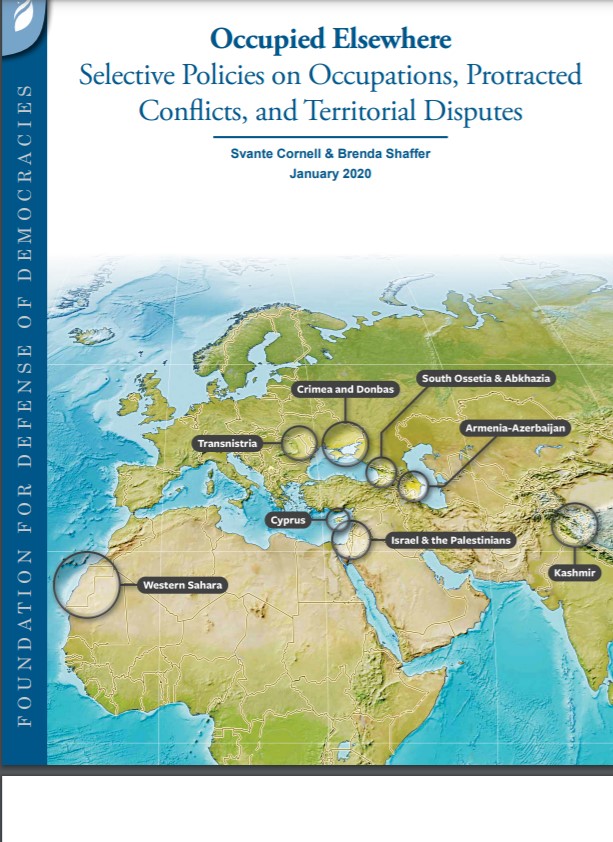China's Belt Road Initiative in Eurasia: The Challenge of Fostering Sustainable Connectivity
Co-sponsored by the Davis Center for Russian and Eurasian Studies and the Fairbanks Center for Chinese Studies at Harvard; and the Mossavar-Rahmani Center for Business and Government; and the Central Asia-Caucasus Institute at the the American Foreign Policy Council
Since its official launch in 2013, China's Belt and Road Initiative (BRI) has become a topic of intense research and and discussion. While there is no shortage of research projects on the features and implications of Beijing's massive investments in infrastructure connecting Asia with Europe and Africa, our understanding of linkages between China's activities in various geographic regions and emerging interdependencies is limited. This roundtable will gather experts on Chinese investments and policies in Europe, the South Caucasus and Central Asia (the Silk Road region of the BRI) to present a more comprehensive picture of Chinese-designed connectivity in Eurasia.
Roundtable participants will discuss the current responses by policy makers in the EU, the South Caucasus, Central Asia and the US to the BRI and the changing realities that it is producing. They will also propose their visions of what is desirable and feasible, taking into consideration the opinions of American and European officials regarding the importance of environmental standards and the need for a level-playing field for companies. The European Commission recently published the Joint Communication "Connecting Europe and Asia – Building Blocks for an EU Strategy" explaining its own approach to connectivity as sustainable, comprehensive and rules-based and enlisting its plans for raising investment to foster such sustainable connectivity. This promises to be a tall order--what role can (or should) the US play?
Philippe Le Corre is a Senior Fellow at the Mossavar-Rahmani Center for Business and Government at the Harvard Kennedy School. He is also a nonresident Senior Fellow with the Carnegie Endowment for International Peace and Associate with the Fairbank Center for Chinese Studies at Harvard. He was previously a Fellow with the Brookings Institution in Washington, and a Special Assistant for International Affairs to the French Minister of Defense. For the past five years, he has specialized on China-Europe relations, Chinese overseas investments and China's foreign policy, authoring many articles and reports, including the newly published "China as a Geoeconomic Influencer: Four Case Studies" (Carnegie Paper, 2018). His latest book, China's Offensive in Europe, was published by Brookings Press in 2016.
Mamuka Tsereteli is a Senior Fellow with the Central Asia-Caucasus Institute, part of the American Foreign Policy Council, based in Washington DC. He is a Senior Adjunct Professorial Lecturer at School of International Service at American University. He served as a Director, Center for Black Sea-Caspian Studies at AU between 2009-2013, and as an Assistant Professor at School of International Service in 2007-2011. Dr. Tsereteli is a member of the part time faculty at Johns Hopkins SAIS. His areas of interests include international relations and international economic policy, economic and energy security, political and economic risk analysis and mitigation strategies, and business development. Dr. Tsereteli previously served as Founding Executive Director at the America-Georgia Business Council, and Economic Counselor at the Embassy of Georgia in Washington, covering relationships with international financial institutions, US assistance programs and business initiatives.
Nargis Kassenova is a Senior Fellow at the Davis Center for Russian and Eurasian Studies, Harvard University, where she leads the Program on Central Asia. She is an Associate Professor at the Department of International Relations and Regional Studies of KIMEP University based in Almaty (Kazakhstan) where she launched both the KIMEP Central Asian Studies Center (CASC) and China and Central Asia Studies Center (CCASC). Her areas of research include Central Asian politics and security, Eurasian geopolitics, Kazakhstan's foreign policy, and religion and politics in Central Asia.
Svante E. Cornell is the Director of the Central Asia-Caucasus Institute & Silk Road Studies Program Joint Center, and a co-founder of the Institute for Security and Development Policy, Stockholm. His main areas of expertise are security issues, state-building, and transnational crime in Southwest and Central Asia, with a specific focus on the Caucasus and Turkey. He is the Editor of the Central Asia-Caucasus Analyst, the Joint Center's bi-weekly publication, and of the Joint Center's Silk Road Papers series of occasional papers. Cornell is Senior Fellow for Eurasia at the American Foreign Policy Council. He is a member of the Swedish Royal Academy of Military Science, and a Research Associate with the W. Martens Center for European Studies in Brussels. He is a Senior Fellow with the American Foreign Policy Council and an Associate Research Professor at the Johns Hopkins University's School of Advanced International Studies. Formerly, Cornell served as Associate Professor of Government at Uppsala University.
Speakers:
Philippe Le Corre, Mossavar-Rahmani Center for Business and Government, Harvard Kennedy School
Mamuka Tsereteli, Senior Fellow, Central Asia-Caucasus Institute at the American Foreign Policy Council
Nargis Kassenova, Davis Center for Russian and Eurasian Studies, Harvard University
Moderator: Svante E. Cornell, Director, Central Asia-Caucasus Institute at the American Foreign Policy Council
Where: CGIS South Building, 1730 Cambridge Street, Room S354, Cambridge, Massachusetts 02138
When: Tuesday, October 30, 2018 from 2:00 - 4:00 pm
RSVP: Click HERE to register
More Details: Please call 617-495-4037.




